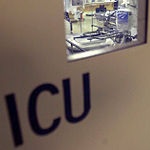 Last weekend I attended the fall conference of the American Academy of Private Physicians, a group dedicated to encouraging, organizing, and supporting concierge physicians. Here are the most interesting points I took away from the event.
Last weekend I attended the fall conference of the American Academy of Private Physicians, a group dedicated to encouraging, organizing, and supporting concierge physicians. Here are the most interesting points I took away from the event.
• The most inspirational talk was given by Dr. David Schenck, a medical ethicist at Vanderbilt. He asserted that doctors are effective when they build a healing relationship with their patients. Concierge physicians are uniquely able to take the time to forge such relationships. His lecture was a welcome reminder that despite the technical, economic, and legal upheaval that medicine is undergoing, we are healers first and foremost.
• Though in one form or another concierge medicine has been around for about a decade, there is still no unanimity about what to call our kind of medical practice. Possible names have only multiplied. Names like concierge medicine, direct care, retainer medicine, and private medicine are used interchangeably and I think are needlessly confusing. As I wrote a year ago, once enough doctors do it, it won’t need a name.
• There was widespread agreement that American medicine is about to undergo unprecedented regulatory change. You may think that this is only due to the Affordable Care Act which is just now beginning to be implemented, but the ACA is only part of the regulatory avalanche descending on medicine. Another bureaucratic mess heading our way is ICD-10. ICD is the International Classification of Diseases, a coding system for all diagnoses that are submitted to insurance companies with medical bills. The current version, ICD-9, has about 18,000 diagnosis codes covering all the various ailments that may befall patients. ICD-10 expands it to about 140,000 codes and does so in mind-numbing and self-parodying complexity. The switch from ICD-9 to ICD-10 (which has already been delayed a year) is scheduled for October 2014. It promises to be a boon for health IT consultants who will be guaranteed full employment. But it will likely be an expensive and stressful labyrinth for doctors and hospitals who will have to implement the changes to their billing systems.
Those of us who do not collect a single dollar from any insurance company will be in the fortunate position of avoiding much of the regulatory deluge. We will be able to continue to focus on what’s best for the patient, not what’s covered, and on how to safely confirm the diagnosis, not how to code it.
• Finally, the lecture about marketing our practices was fascinating. It stressed that patients use the web to find physicians, and that physicians should have a frequently updated website, and should engage social media. But there is no marketing tool as powerful as a satisfied patient making a recommendation to someone she knows. We were reminded that many patients might believe that successful physicians have a full practice and are not looking for patient referrals. Our happiest most loyal patients need know that we need them to be our champions in the community. So I ask that you recommend me to your coworkers, colleagues and loved ones. I promise to take great care of them.
We may not be able to control the changes that are about to sweep through healthcare, but physicians can weather the storm by remembering who they work for, and that first and foremost we are healers.
Learn more:
Healing Skills for Medical Practice (Annals of Internal Medicine article, 2008, by subscription only. This should be mandatory reading for primary care physicians.)

